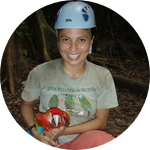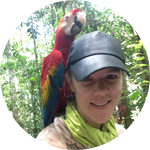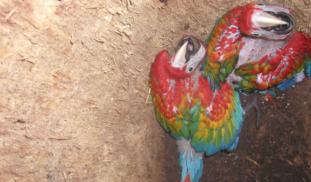Please wait...
About This Project
Wild Scarlet Macaw populations are declining due to the illegal trade and habitat loss. Although Scarlet Macaws lay 2-4 eggs, macaw parents will only feed the 1st and 2nd chick, while the others starve to death. We will develop techniques to increase survival of these chicks by moving them into new nests with no chicks, or only 1 chick. Our research suggests that the new parents will adopt and care for their new chicks, allowing them to reach maturity and fledge from the nest.
More Lab Notes From This Project

Browse Other Projects on Experiment
Related Projects
Satellite tracking the secret lives of vulnerable juvenile Loggerhead sea turtles off Morocco’s Coast
This pioneer project marks the first time in Morocco's history for satellite transmitters deployed on sea...
Out for blood: Hemoparasites in white-tailed deer from the Shenandoah Valley in Northern Virginia
Our research question centers about the prevalence and diversity of hemoparasites that infect ungulate poplulations...
Cyanova: A modular, budget photobioreactor for the efficient cultivation of microalgae
Microalgae are overlooked constantly as a protein source because of it's high costs and complex maintenance...




